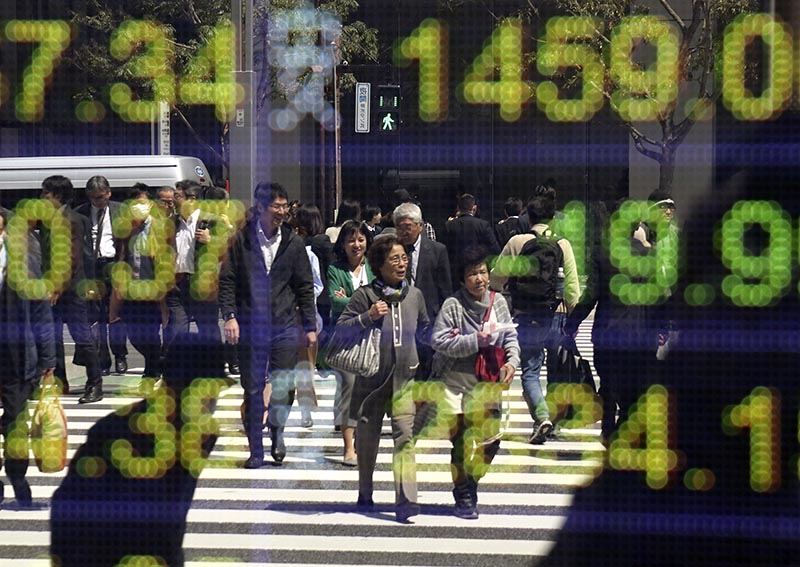Asian shares mixed as Trump talks down US dollar
BEIJING: Asian stock markets were mixed Thursday after President Donald Trump withdrew a threat to declare China a currency manipulator. Trump's comment that the US dollar was getting too strong helped push the yen higher, hurting Japanese exporters' shares.
Keeping Score: Tokyo's Nikkei 225 fell 1.1 percent to 18,341.85 and Hong Kong's Hang Seng lost 0.1 percent to 24,296.85. The Shanghai Composite Index edged 0.1 percent higher to 3,277.88 and India's Sensex shed 0.2 percent to 29,594.95. Sydney's S&P-ASX 200 retreated 0.9 percent to 5,882.40 while Seoul's Kospi added 0.5 percent to 2,139.44. Taiwan gained, while Singapore, Jakarta and New Zealand slipped.
Wall Street: Industrial, materials and energy companies led US stocks modestly lower before markets were due to be closed Friday for a holiday. That extended losses for the month as investors waited for a round of earnings reports to start this week. Utilities, phone companies and other high-dividend stocks were among the biggest gainers. The Dow Jones industrial average fell 0.3 percent to 20,591.86 and the Nasdaq composite index lost 0.5 percent, to 5,836.16. The Standard & Poor's 500 index slid 0.4 percent, to 2,344.93.
Trump Watch: Trump said he won't declare China a currency manipulator, dropping a key campaign promise. In a newspaper interview and a White House news conference, Trump hailed the rapport he developed with his Chinese counterpart, Xi Jinping, in meetings last week that seem to have eased trade tensions. A declaration that China manipulates the exchange rate of its yuan to gain a trade advantage could have opened the way to sanctions. "They're not currency manipulators," Trump told The Wall Street Journal, saying Beijing hadn't been cheating on its currency for months.
Dollar Talk: On the dollar's exchange rate against those of major trading partners, Trump said: "I think our dollar is getting too strong, and partially that's my fault because people have confidence in me." He added that "It's very, very hard to compete when you have a strong dollar and other countries are devaluing their currency." Those remarks helped push the yen to its highest level since mid-November, just after the presidential election.
Analyst Viewpoint: "After a few weeks of relative calm, the 'Trump hurricane' is back to disrupt the tranquility in the currency markets," said Margaret Yang of CMC Markets in a commentary. "I describe Trump's influence on currencies as a hurricane as it's both harmful and unpredictable. It is debatable whether Trump can have both a weak currency and massive fiscal stimulus at the same time."
China Trade: China's export growth accelerated in March in a positive sign for global demand while import growth cooled. Customs data show exports rose 16.4 percent from a year earlier to $180.6 billion, up from 4 percent growth in the first two months of the year. Imports rose 20.3 percent to $156.6 billion, down from the January-February rate of 26.4 percent.
Energy: Benchmark US crude sank 2 cents to $53.09 per barrel in electronic trading on the New York Mercantile Exchange. The contract fell 29 cents on Wednesday to $53.11. Brent crude, used to price international oils, added 1 cent to $55.87. It lost 37 cents the previous session to $55.86.
Currency: The dollar declined to 108.84 yen from Wednesday's 109.03 yen. The euro edged up to $1.0670 from $1.0665.






